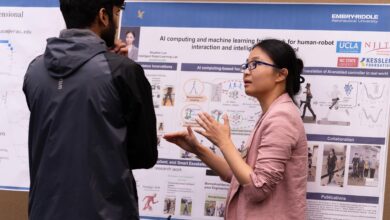UAE Proposes AI ‘Marriage’ With US

The United Arab Emirates reportedly hopes to deepen its artificial intelligence relationship with the United States.
Omar Sultan Al Olama, the UAE’s AI minister, told the Financial Times (FT) in an interview published Tuesday (June 4) that a deal in which Microsoft purchased a $1.5 billion stake in Abu Dhabi-based AI firm G42 was the first of many such collaborations.
“Now you’re going to see the outcomes of that marriage, if I may use that word, between both G42 and Microsoft, but also the UAE and the United States,” Al Olama said, per the report. “When you look at the frontier technology, at the most cutting edge, that needs to be in coordination with the U.S. players and there needs to be reassurances that are given to the U.S.”
Microsoft announced its investment in G42 in April, with the two companies also setting up a $1 billion fund for AI developers. G42 agreed to reduce its presence in China to satisfy concerns in the U.S.
The UAE’s AI hopes are more apparent this year, the report said. Buoyed by roughly $2 trillion in sovereign wealth funds, the Gulf state aims to reduce its dependence on oil by establishing itself as a worldwide center for AI.
That has led to the creation of the investment vehicle MGX, expected to be worth billions of dollars, helmed by the UAE’s national security adviser Sheikh Tahnoon bin Zayed al-Nahyan, according to the report.
MGX has held discussions with OpenAI about its chip development plans, and Sheikh Tahnoon has led talks between the UAE and the U.S. on AI, per the report.
Many countries in the Middle East are trying to establish themselves as global AI leaders.
For example, Saudi Arabia set up a $40 billion AI investment fund, which underscores “AI’s potential to reshape industries and fuel economic expansion,” PYMNTS reported in March
A PwC study projected that by the decade’s end, the Middle East could harness 2% of AI’s total global benefits, or around $320 billion.
“Successful AI development efforts could not only lead to a wave of local creativity and innovation such as new startups, and attracting [a] generation of students to the field, but could spread the resulting prosperity across the region, countering local disbalances and democratizing the knowledge economy to attract the brightest minds,” geopolitical analyst Irina Tsukerman told PYMNTS in an interview at the time.
For all PYMNTS AI coverage, subscribe to the daily AI Newsletter.



